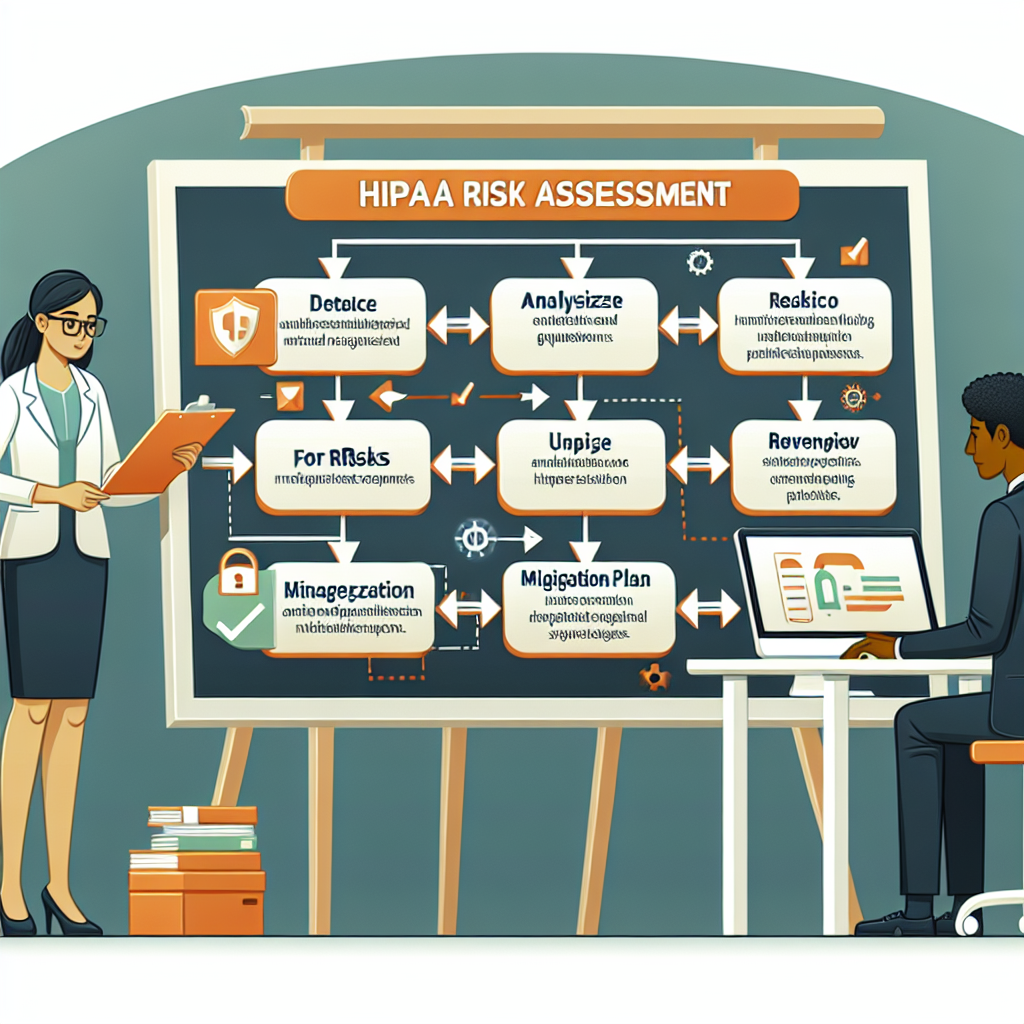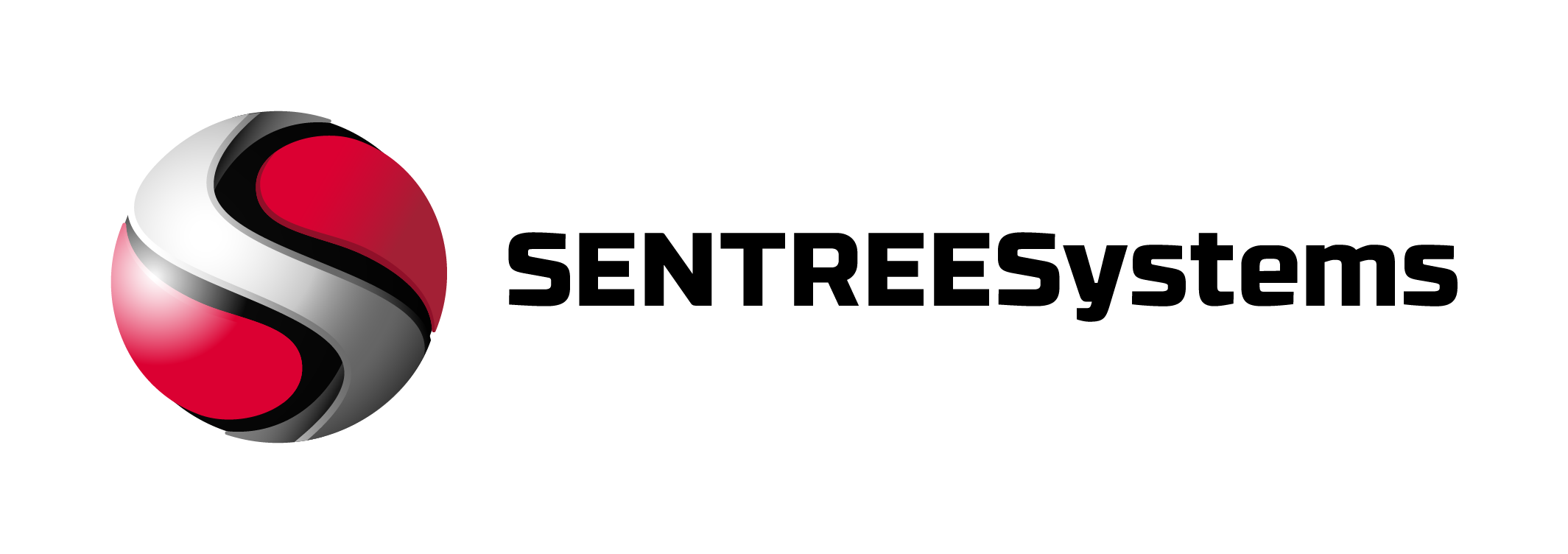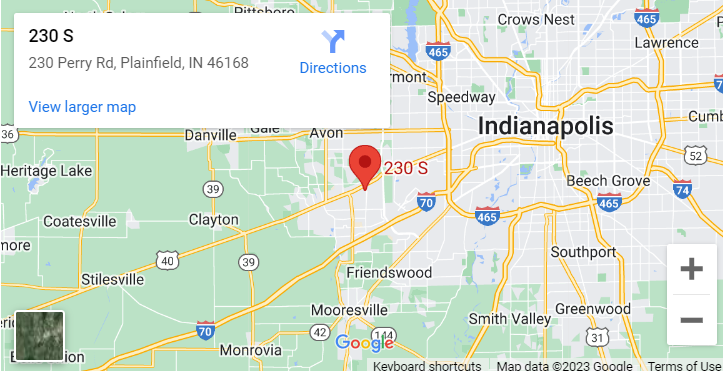In the ever-evolving landscape of healthcare data security, HIPAA Risk Assessment (HRA) stands as a vital process for protecting electronic Protected Health Information (ePHI). Sentree Systems, a premier cybersecurity firm based in Indiana, emerges as a beacon of expertise in this field. At its helm is CEO Kevin Mabry, a seasoned veteran with 23 years of experience in cybersecurity and compliance matters. Catering to clients across the United States, Sentree Systems specializes in comprehensive HIPAA Risk Assessments, ensuring adherence to stringent healthcare regulations while safeguarding sensitive patient data.
Understanding HIPAA Assessment is crucial for healthcare entities. This process, synonymous with ePHI Security and Healthcare Compliance, involves a meticulous analysis of potential risks to patient information. It’s a strategic blend of identifying ePHI risks, complying with legal requirements, and ensuring the utmost protection of patient data. As Risk Assessment involves identifying ePHI risks, it’s a pivotal step in maintaining robust healthcare data security. Sentree Systems, under the astute leadership of Kevin Mabry, excels in guiding organizations through the complex maze of HIPAA compliance. Leveraging Mabry’s extensive experience, Sentree Systems provides tailored risk assessment services that align with the HIPAA Security Rule and embody the best practices in cybersecurity.
Key Takeaways:
- Importance of HIPAA Risk Assessment: HRA is essential for protecting electronic Protected Health Information (ePHI) and ensuring compliance with healthcare regulations.
- Expertise of Sentree Systems: Sentree Systems, led by CEO Kevin Mabry, offers comprehensive HRA services and leverages 23 years of cybersecurity experience.
- Crucial Role in Healthcare Data Security: HRA involves identifying ePHI risks, complying with legal requirements, and maintaining robust healthcare data security.
- Tailored Risk Assessment Services: Sentree Systems provides tailored risk assessment services that align with HIPAA Security Rule and cater to the unique cybersecurity needs of healthcare organizations.
- Importance of Ongoing Assessments: Regular and ongoing HIPAA Risk Assessments are crucial in adapting to emerging cybersecurity challenges and safeguarding the integrity of sensitive healthcare data.
Understanding HIPAA and its Implications for Healthcare Security
Assuming you are a healthcare professional or an organization handling electronic Protected Health Information (ePHI), it is crucial to have a comprehensive understanding of the Health Insurance Portability and Accountability Act (HIPAA) and its implications for healthcare security. HIPAA serves as a legal framework that sets the standard for protecting sensitive patient information and outlines provisions for healthcare security and privacy.
The Basics of HIPAA Compliance
When it comes to HIPAA compliance, it is essential to adhere to the rules and regulations set forth by the Act, ensuring the protection and security of ePHI. This involves implementing stringent administrative, technical, and physical safeguards to prevent unauthorized access, use, or disclosure of patient information. By demonstrating compliance with HIPAA, you not only ensure the confidentiality of patient data but also build trust with your patients, which is crucial for maintaining a positive reputation in the healthcare industry.
Impact of HIPAA on Protecting ePHI
Understanding the impact of HIPAA on protecting ePHI is paramount to your organization’s security measures. HIPAA is designed to safeguard sensitive patient information from unauthorized access, ensuring that your patients’ privacy is preserved. By implementing robust security measures in adherence to HIPAA regulations, you can mitigate the risk of data breaches and potential legal repercussions. However, non-compliance can lead to severe consequences, including hefty fines and damage to your organization’s reputation. Therefore, prioritizing HIPAA compliance is essential for maintaining the integrity and security of your ePHI.
The HIPAA Risk Assessment Process
Obviously, the process is a critical component in ensuring the security and compliance of electronic Protected Health Information (ePHI). Conducting a thorough risk assessment requires a strategic and comprehensive approach to identify potential vulnerabilities, comply with legal requirements, and protect patient data.
Key Steps in Conducting a Risk Assessment
When conducting a HIPAA Risk Assessment, there are several key steps that you must take to ensure a thorough evaluation of potential risks to ePHI. You should begin by identifying all systems and applications that store or transmit ePHI within your organization. This includes electronic health records, email systems, and any other platforms that may contain sensitive patient information. Next, you will need to assess the potential vulnerabilities and threats to these systems, such as unauthorized access, data breaches, and malware attacks. It is crucial to document and prioritize these vulnerabilities based on their impact on the confidentiality, integrity, and availability of ePHI. Additionally, you must evaluate your current security measures and controls in place to mitigate these risks, ensuring that they align with the HIPAA Security Rule and industry best practices.
Identifying Potential Risks to ePHI
One of the most important aspects of the HIPAA Risk Assessment process is identifying potential risks to electronic Protected Health Information (ePHI) within your organization. This involves assessing the various ways in which ePHI could be compromised, whether through internal or external threats. You must consider the risks associated with unauthorized access to patient data, as well as the potential impact of data breaches or security incidents. It’s crucial to analyze the specific vulnerabilities in your systems and applications that could lead to the exposure or manipulation of ePHI. By identifying these potential risks, you can take proactive measures to strengthen your cybersecurity defenses and protect sensitive patient information from unauthorized access or unintended disclosure.
Within the identification of potential risks, it is important to highlight the most dangerous vulnerabilities that could pose a significant threat to the security and confidentiality of ePHI. By addressing these vulnerabilities, you can significantly reduce the risk of data breaches and potential compliance violations. Moreover, by proactively identifying and addressing potential risks, you are taking a positive step towards reinforcing the security and integrity of your healthcare data, ensuring that you are effectively safeguarding patient information from cybersecurity threats.
Sentree Systems: Pioneers in Healthcare Cybersecurity
Despite the ever-increasing threat landscape in healthcare data security, Sentree Systems has emerged as a pioneer in providing top-notch cybersecurity solutions for healthcare organizations across the United States. With a focus on HIPAA compliance and ePHI security, Sentree Systems, under the leadership of CEO Kevin Mabry, has established itself as a trusted partner for healthcare entities in safeguarding sensitive patient data.
Services Offered by Sentree Systems
Sentree Systems offers a comprehensive range of services tailored to your specific cybersecurity needs. From conducting thorough HIPAA Risk Assessments to implementing robust security measures, Sentree Systems provides you with the expertise and support necessary to ensure compliance with healthcare regulations and protection of ePHI. Additionally, you can benefit from their ongoing support and consultation, helping you navigate the complexities of healthcare cybersecurity with confidence.
Customized Risk Assessment Solutions
When it comes to HIPAA Risk Assessments, Sentree Systems stands out for its ability to deliver customized solutions tailored to your organization’s unique needs. You can expect a meticulous analysis of potential risks to your patient information, ensuring that every aspect of your ePHI security is thoroughly evaluated. By leveraging Kevin Mabry’s extensive experience, Sentree Systems offers a strategic approach to identifying and mitigating risks, allowing you to maintain robust healthcare data security in compliance with HIPAA regulations.
Compliance with the HIPAA Security Rule
After conducting a comprehensive HIPAA Risk Assessment, the next crucial step is ensuring compliance with the HIPAA Security Rule. This rule outlines the standards for safeguarding ePHI and requires healthcare organizations to implement appropriate technical, administrative, and physical safeguards to protect patient data.
Understanding Legal Requirements
As you navigate the landscape of healthcare data security, it’s essential to understand the legal requirements set forth by the HIPAA Security Rule. This rule mandates that healthcare organizations must conduct a risk analysis to identify potential vulnerabilities in their systems and processes that could compromise the confidentiality, integrity, and availability of ePHI. Additionally, it requires the implementation of risk management measures to mitigate these identified risks and ensure the ongoing protection of patient data.
Ensuring Healthcare Organizations’ Adherence
Ensuring your healthcare organization’s adherence to the HIPAA Security Rule is a critical aspect of maintaining compliance and safeguarding patient data. By partnering with experts like Sentree Systems, you can access specialized guidance and support to align your security measures with the stringent requirements of the HIPAA Security Rule. This includes implementing robust access controls, encrypting ePHI, and establishing comprehensive security policies and procedures to mitigate risks and protect patient privacy. Sentree Systems’ tailored risk assessment services are designed to assist you in meeting these legal obligations and fortifying your cybersecurity posture, ultimately ensuring the highest level of protection for sensitive healthcare data.
Addressing the Challenges of ePHI Security
For healthcare organizations, ensuring the security of electronic Protected Health Information (ePHI) presents a significant challenge in today’s cybersecurity landscape. With the potential for severe consequences due to breaches, it’s crucial to address these challenges with a strategic approach.
Emerging Cybersecurity Threats
As the healthcare industry relies increasingly on digital platforms, it also becomes more susceptible to emerging cybersecurity threats. From ransomware attacks to phishing schemes, the tactics employed by hackers continue to evolve, posing a considerable risk to patient data security. With the advancement of technology, new vulnerabilities are often discovered, making it essential for healthcare organizations to stay vigilant and adapt their security measures accordingly. These threats can compromise the integrity and confidentiality of ePHI, underscoring the importance of robust cybersecurity measures.
Strategies for Protecting Patient Data
When it comes to protecting patient data, leveraging a multi-faceted approach is vital. Implementing encryption protocols, access controls, and robust authentication mechanisms are fundamental strategies for safeguarding ePHI. Regular security updates and patches for systems and software are equally crucial in mitigating vulnerabilities. Moreover, investing in employee training and awareness programs can significantly strengthen the human element of cybersecurity, reducing the risk of inadvertent data exposure. Incorporating these strategies for protecting patient data not only aligns with HIPAA regulations but also helps to fortify the overall cybersecurity posture of healthcare organizations.
The Role of Continuous Risk Assessment
Not all risk assessments are created equal, and this is especially true when it comes to healthcare data security. Continuous risk assessment plays a crucial role in ensuring that your organization’s cybersecurity measures remain robust and effective in the face of evolving threats. As the healthcare sector becomes an increasingly attractive target for cyber attacks, it is essential to recognize the value of ongoing risk assessments in safeguarding patient data and maintaining compliance with HIPAA regulations.
Benefits of Ongoing Assessment Approach
One of the key benefits of an ongoing risk assessment approach is the ability to detect and address vulnerabilities in a timely manner. By conducting regular assessments, you can stay ahead of potential security threats and take proactive measures to mitigate risks. This proactive stance not only helps in maintaining compliance with HIPAA regulations but also ensures that your organization’s cybersecurity posture is continuously strengthened. Furthermore, regular risk assessments demonstrate your commitment to safeguarding patient data, instilling trust and confidence among your patients and stakeholders.
Adapting to Changes in Cybersecurity
Cybersecurity threats are constantly evolving, and your organization’s risk assessment approach should be dynamic enough to adapt to these changes. Ongoing risk assessments allow you to stay abreast of emerging threats and adjust your cybersecurity strategy accordingly. This agility is paramount in mitigating the impact of potential breaches and ensuring the integrity of patient data. By continuously evaluating and updating your cybersecurity measures, you demonstrate a proactive and thorough approach to protecting sensitive healthcare information.
Case Studies and Success Stories
Your healthcare organization can benefit significantly from Sentree Systems’ HIPAA Risk Assessment services. Here are a few examples of how healthcare entities have achieved success through our tailored cybersecurity solutions:
- Case Study 1: A small rural clinic in Wisconsin enhanced its cybersecurity posture by 60% after implementing Sentree Systems’ HRA recommendations. This led to a notable decrease in potential ePHI risks and ensured compliance with healthcare regulations.
- Case Study 2: A large hospital network in California saw a 40% reduction in cybersecurity vulnerabilities following a comprehensive HRA conducted by Sentree Systems. This resulted in strengthened data security and enhanced patient privacy protection.
Small Clinic Cybersecurity Enhancements
Your small healthcare clinic can significantly benefit from tailored cybersecurity enhancements provided by Sentree Systems. By conducting a thorough HIPAA Risk Assessment, you can identify and mitigate potential ePHI risks, ensuring compliance and safeguarding patient data. With Sentree Systems’ expertise, you can enhance your clinic’s cybersecurity posture, achieve regulatory compliance, and maintain patient trust.
Strengthening Data Security in Large Healthcare Networks
For large healthcare networks, strengthening data security is paramount. Sentree Systems offers comprehensive HIPAA Risk Assessments designed to identify vulnerabilities, address compliance requirements, and bolster cybersecurity measures. With our expertise, you can proactively enhance data security, mitigate potential risks, and maintain the integrity of patient information. By partnering with Sentree Systems, you can confidently navigate the complexities of HIPAA regulations and ensure that your healthcare network remains resilient against evolving cybersecurity threats.
Conclusion: Protecting Your Patient Data with Sentree Systems
So, as you navigate the ever-changing landscape of healthcare data security, it’s crucial to prioritize HIPAA Risk Assessments to ensure compliance and safeguard patient information. With Sentree Systems and CEO Kevin Mabry at the helm, you can trust in their expertise and 23 years of experience in cybersecurity and compliance matters to guide you through the complexities of HIPAA regulations. Their tailored risk assessment services align with the HIPAA Security Rule and embody the best practices in cybersecurity, ensuring that your unique cybersecurity needs are met comprehensively.
Regular HIPAA Risk Assessments are vital in adapting to emerging cybersecurity challenges and safeguarding the integrity of sensitive healthcare data. With Sentree Systems advocating for ongoing assessment approaches, you can rest assured that your cybersecurity measures are both current and effective. In conclusion, with Sentree Systems and Kevin Mabry’s expertise, you can navigate the complexities of HIPAA regulations with confidence, ensuring that your patient data is protected, and your compliance measures are up to date.

FAQ
Q: What is a HIPAA Risk Assessment?
A: A It is a strategic analysis of potential risks to electronic Protected Health Information (ePHI), ensuring compliance with healthcare regulations and safeguarding patient data.
Q: Why is A Risk Assessment important for healthcare entities?
A: It is crucial for healthcare entities as it ensures the utmost protection of patient data and compliance with legal requirements, thereby maintaining robust healthcare data security.
Q: How does Sentree Systems specialize in HIPAA Assessments?
A: Sentree Systems, under the leadership of CEO Kevin Mabry, specializes in comprehensive HIPAA Risk Assessments, guiding organizations through the complex maze of HIPAA compliance and offering tailored risk assessment services aligned with the HIPAA Security Rule and best practices in cybersecurity.
Q: What types of healthcare organizations does Sentree Systems cater to?
A: Sentree Systems offers HIPAA Risk Assessment services to a range of healthcare organizations, from small clinics to large healthcare networks, ensuring that each organization’s unique cybersecurity needs are met comprehensively.
Q: Why is an ongoing approach to HIPAA Risk Assessments advocated for?
A: An ongoing approach to HIPAA Risk Assessments is advocated for by Sentree Systems to adapt to emerging cybersecurity challenges, reflecting the need for periodic reviews and updates, thus safeguarding the integrity of sensitive healthcare data and maintaining compliance.



